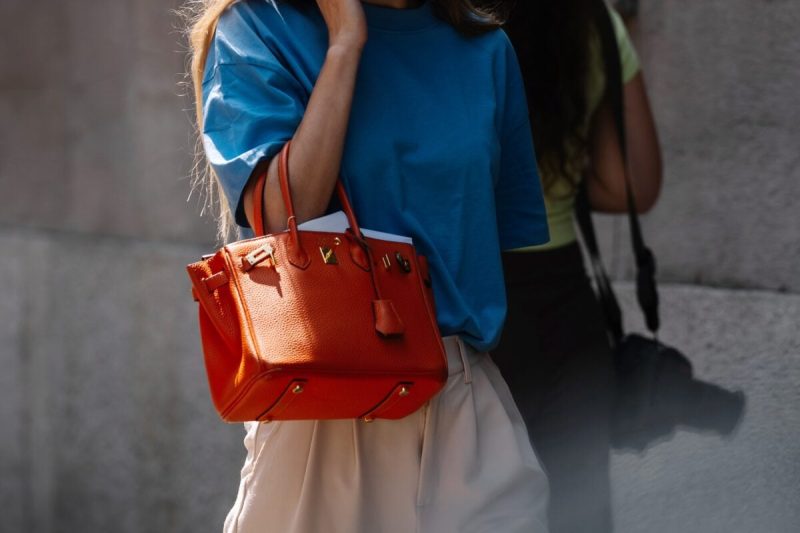The rise of luxury handbags as investment assets: trends, challenges, and opportunities
In the last few decades, the luxury handbag industry has grown substantially, with certain bags being auctioned off for hundreds of thousands of euros. Brands such as Hermes, Chanel, and Louis Vuitton have become highly desirable among fashion lovers and sparked the interest of collectors, investors, and economists.
The advent of designer handbags can be traced back to the growth in fashion houses during the 1920s. With Louis Vuitton and Gucci leading the pack, designers started producing and promoting high-end products, which resulted in the introduction of the first designer handbags. One of the most iconic designer handbags is the Hermes Birkin bag, named after actress and Anglo-French Style Icon Jane Birkin. It is renowned for its expensive cost and limited production, with some bags sold for hundreds of thousands of pounds. The Louis Vuitton Speedy bag and the iconic Chanel 2.55 bag are other timeless classics that remain in high demand.
Over the years, in addition to high-fashion accessories, designer handbags have become a demonstration of style and affluence in the fashion world. They also represent a potential investment that can be appreciated in value. With the growth in demand for luxury handbags, it has become a profitable market for investors to explore. Due to their limited production, they possess an air of exclusivity, and their value increases with time, making them valuable assets that can generate significant returns on investment. Could luxury handbags be the next big investment opportunity, competing with traditional assets?
Hermès maintains high demand for its handbags by limiting its production. The company could easily sell more, but it only increases output by 7% each year. This strategy ensures that there will always be buyers, whatever economic conditions prevail, but it also creates a profitable opportunity for resellers.
In order to purchase a Birkin, clients must first make significant purchases from the store and establish a good relationship with the sales assistants. This has led to the belief among Hermès customers that those who spend the most money are given priority to the Birkin. It is said that most people can expect to spend €10,000 or more on other Hermès products before they will be offered a basic Birkin.
Designer handbag collectors have named this the Hermès “prespend” or the “spend ratio. Hermès never explicitly talks about this or uses these terms, but potential Birkin buyers say their sales assistants have told them they need to visit the store more often if they want to be considered for the latest version of the bag.
The high demand for luxury bags and clothing, which has an estimated annual revenue of €200bn, has seen the emergence of dedicated reselling platforms such as RealReal, which is also contributing to the market’s growth. As a result, counterfeit producers have not been slow to join in. However, whereas it was easy to spot counterfeit handbags in years past due to their poor quality. Today’s counterfeits, the so-called “superfakes,” have improved their product and become so accurate that they are almost indistinguishable from the authentic versions and sold at a fraction of the original price. To purchase the best super fakes, women are using sites like Reddit to “quality check” bags ordered from Chinese manufacturers.
This complex market for pre-owned luxury bags has created a risk of fraud for potential buyers of the real thing. To tackle this problem, third-party agents play a significant role in the difficult task of verifying the authenticity of the products. Many luxury brands include authenticity cards with their bags, and reselling platforms offer authentication services. Several trustworthy authentication services are available that thoroughly examine the handbag and issue a certificate of authenticity. These services are especially valuable when buying a handbag online, as, at times, it is virtually impossible to determine its authenticity based on internet photos and the assurance of a seller who you may never meet.
Luxury handbags can serve as a hedge against inflation and retain their value for an extended period. As traditional currencies continue to lose value, high-end items like handbags may increase in worth. It should be noted that the risks and potential gains are not exhaustive and may vary depending on the specific brand and current market conditions. Before making any investment decisions, due to the risks of fraud and superfakes, as with any investment, potential buyers should conduct thorough research and seek guidance from industry professionals.
As said the luxury handbag market has grown significantly as both collectors and investors show interest in the industry. As these assets gain popularity, high-end accessories are being considered as a way to diversify investment portfolios. Established handbag brands such as Hermes, Chanel, and Louis Vuitton have proven their ability to maintain their value over time, making them a reliable choice for investment. Investing in fashion collectibles can be profitable for those interested in fashion and the financial means to invest. However, the value of luxury handbags can vary due to changes in current fashion trends, consumer preferences, and the global economic climate. The earnings may also fluctuate depending on the market demand and the handbag’s condition at the time of resale.`); } else { $(‘.blur’).css({ ‘background’: ‘linear-gradient(95deg, #4e4e4e 25%, #000 45%, #bbb 75%, #FFFFFF 100%) 98%/200% 100%’, ‘text-transform’: ‘inherit’, ‘-webkit-background-clip’: ‘text’, ‘background-clip’: ‘text’, ‘-webkit-text-fill-color’: ‘transparent’ }) $(“.wpb_content_element”).append(`
Want to read more?
Click on the button below to access all premium content
articles by purchasing one of our educational packages
Want to read more?
Click on the button below to access all premium content
articles by purchasing one of our educational packages
The post The rise of luxury handbags as investment assets: trends, challenges, and opportunities appeared first on FinanceBrokerage.


